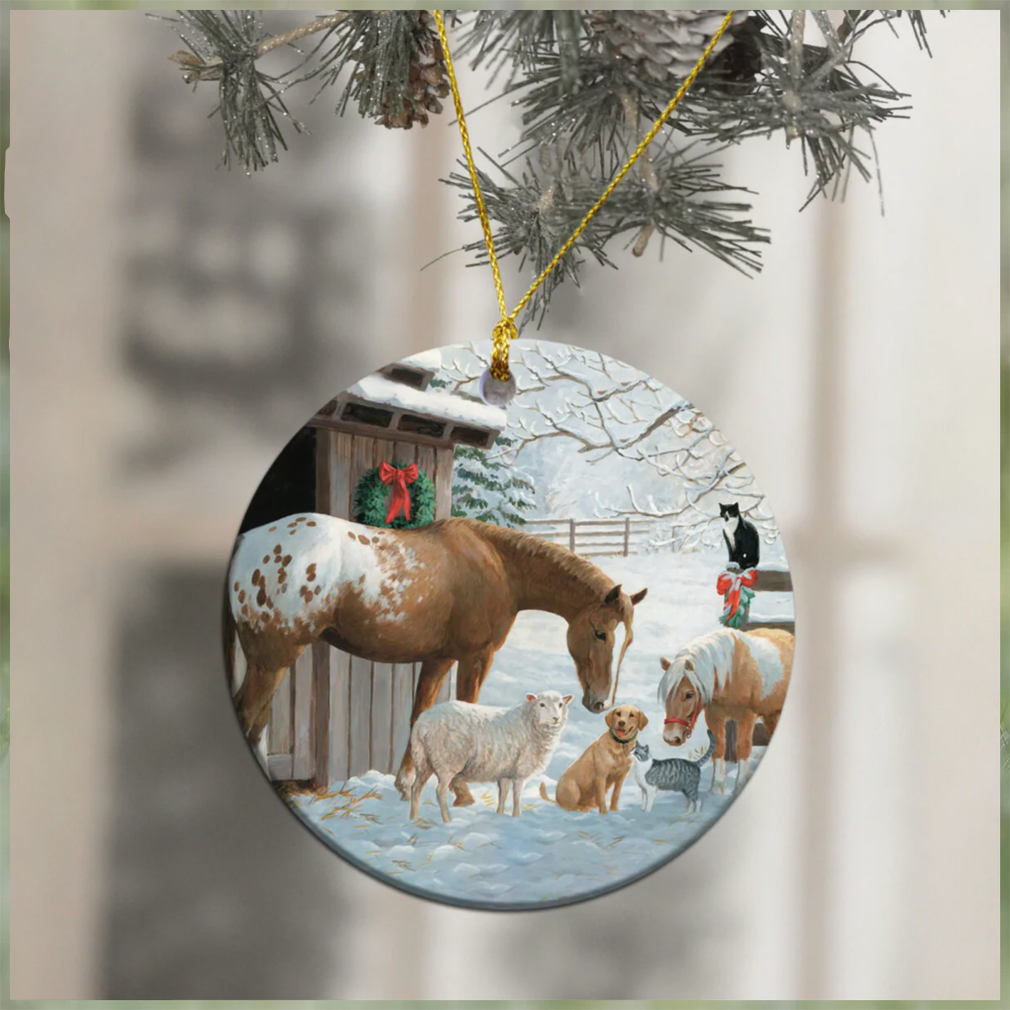Love Horse Round Mica Ornament 5
The fifth is the Love Horse Round Mica Ornament 5 holiday, and then you can expect another two weeks of shuttered businesses, slowed or no order processing, and then a slow ramp back up to full productionfulfillment. In fact, that is the worst way to deal with the holiday. Shutting off the lights for a few weeks can confuse potential customers that assume you must be some sort of “fly by night” company that can’t be trusted. Shutting down during Chinese New Year could be damaging to your reputation. Instead, it should be business as usual for your business during the holiday, just with certain modifications. You will certainly face delays, on some products more than others, but Chinese New Year can be prepared for and dealt with effectively as long as you’re smart about how you handle your business during this time.
 ()
()One of Love Horse Round Mica Ornament 5 is by the Transiberian Orchestera as described in Wikipedia: Late one Christmas night in spring 1827, Ludwig van Beethoven has completed his masterpiece, his Tenth Symphony (which in reality, was never completed). Just as this work is finished, Fate and her deformed son Twist (as in ‘Twist of Fate’) arrive in his home and inform the composer of what he had expected for a long while: that this night was the night of his death. After this explanation, the Devil arrives to claim Beethoven’s soul. He offers the composer a deal; Mephistopheles will allow Beethoven to keep his soul if he may erase the memory of Beethoven’s works from all mankind. Beethoven is given one hour to consider and Mephistopheles leaves the room.
Love Horse Round Mica Ornament 5, Hoodie, Sweater, Vneck, Unisex and T-shirt
Best Love Horse Round Mica Ornament 5
I remember a Love Horse Round Mica Ornament 5 memoir — Beasts, Men, and Gods — by Ferdinand Ossendowski, a White Pole who fled the Bolshevik revolution through Siberia. He served in General Kolchak’s All-Russian Government before escaping through the Steppes north of Mongolia, and then participated in the government of that most notorious adventurer, the “Mad Baron” Ungern-Sternberg, who attempted to take over Mongolia to restore an imperial Khaganate as part of an imagined reactionary restoration of the Great Mongol, Chinese, and Russian monarchies in the interests of the “warrior races” of Germans and Mongols (a Baltic German, he considered the old Russian ruling class to represent Germandom over and against Jews and Slavs). Some of the things – the acts of desperation and madness, in which he himself was no disinterested observer – Ossendowski relates are harrowing. But this part struck me as very much making a point about what people think of the Steppe peoples, and of what (German-trained) nationalists like Ungern-Sternberg did (and would do again) to the Mongols. And, other things:
▶️ About Love Horse Round Mica Ornament 5 – 3D T-Shirt
• This 3D T-shirt is available in multiple sizes and fits. Please check the product photos and size chart carefully before ordering.
• Printed using advanced 3D all-over printing technology, delivering ultra-vibrant colors, sharp details, and a realistic depth effect that truly stands out.
• The design is embedded directly into the fabric, ensuring it will not crack, peel, or fade over time.
• Crafted from a soft, breathable fabric blend for all-day comfort and durability.
• Colors may vary slightly due to screen settings and lighting conditions.
• This listing includes the 3D T-shirt only. Props or accessories shown in photos are for display purposes and are NOT included.
▶️ CARE INSTRUCTIONS
• Machine wash cold, inside out
• Gentle cycle with mild detergent
• Do not bleach
• Tumble dry low or hang to dry
• Do not iron directly on the design
• Do not dry clean

▶️ PRODUCTION & SHIPPING TIME
• Each 3D T-shirt is made to order, allowing us to deliver premium quality and precise printing. Please review the item details for current processing times.
• Need a rush order? Contact us before purchasing to confirm availability.
• Standard shipping is via USPS First Class Mail. Shipping upgrades are available at checkout. Faster shipping affects transit time only and does not reduce production time.
▶️ SHOP WITH CONFIDENCE
• If there’s any issue with your order, don’t hesitate to contact us—we’re always happy to help.
• Love your 3D T-shirt? Please consider leaving a review. Your support helps our shop grow and continue creating unique designs! 👕🔥


